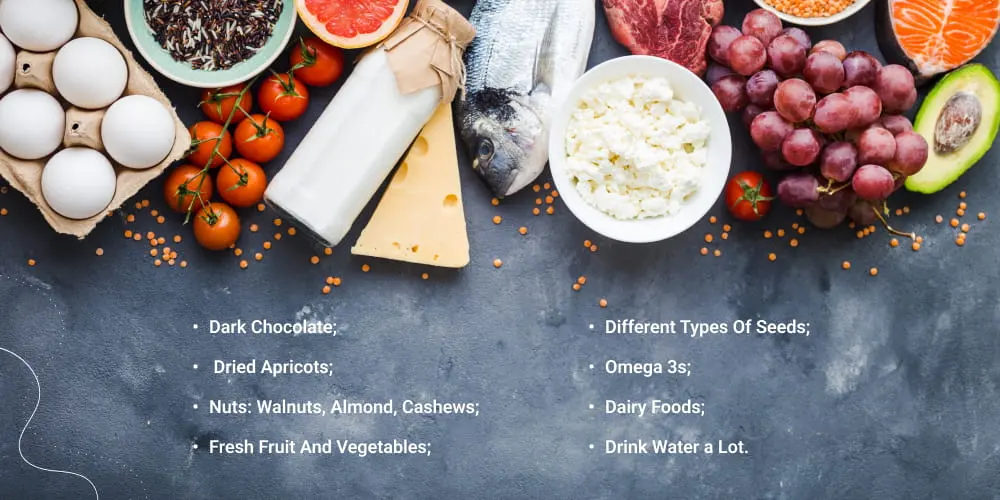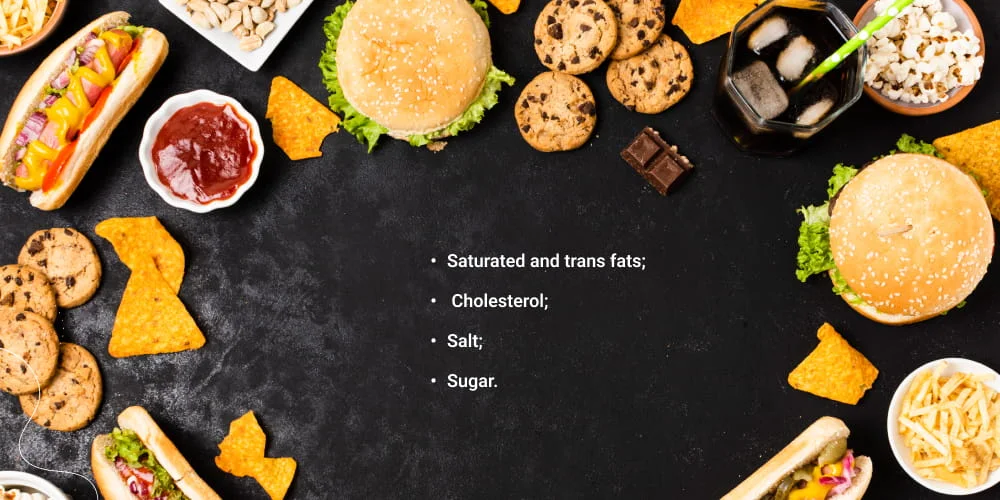Stroke is the fifth highest cause of mortality in the United States, according to the Centers for Disease Control and Prevention (CDC). It can happen when a blood artery carrying oxygen and nutrients to the brain becomes clogged or when a blood vessel draining fluid from the brain ruptures.
There are several risk factors for disease, including:
- High blood pressure.
- Diabetes.
- Smoking.
- Physical inactivity.
However, making healthy lifestyle choices can help reduce your risk of stroke. One way to do it is by following a healthy diet.
The CDC has identified five critical components of a healthy diet: fruits, vegetables, whole grains, and low-fat dairy products. But remember that you can’t choose the appropriate diet without visiting the doctor. You must consult a professional and only then start treatment.
Stroke Prevention Food
It can happen to anyone at any time. It is essential to know the signs and risk factors of a stroke so that you can take steps to prevent one from happening. Some simple steps include:
- Eating a healthy diet.
- Exercising regularly.
- Not smoking.
This article will show several examples of food to reduce your stroke risk. Read on to get the vital knowledge about diet that can save your or your relative life.
1. Dark Chocolate
You might have heard that chocolate is good for your heart health, but did you know it can also help prevent stroke? That’s right – a daily dose of dark chocolate can help reduce your risk by up to 22%.
2. Dried Apricots
These little orange fruits are packed with fiber, essential for good cardiovascular health. Fiber helps to remove cholesterol and other toxins from the blood, keeping the arteries clear.
3. Nuts: Walnuts, Almond, Cashews
These foods are excellent for stroke prevention as they are packed with nutrients like:
- Omega-3 fatty acids.
- Fiber.
- Vitamin E.
- Magnesium.
- Potassium.
4. Fresh Fruit And Vegetables
Starting your day with food full of nutritious breakfast is a great way to prevent stroke. Add some fresh fruits and vegetables to your morning meal to get your day started right.
Fresh fruits and vegetables are full of:
- Vitamins.
- Minerals.
- Antioxidants.
They can help keep your blood pressure in check and improve your overall health.
5. Different Types Of Seeds
Several different seeds have been linked with stroke prevention.
These include:
- Flaxseeds.
- Chia seeds.
- Hemp seeds.
They are high in fiber and omega-3 fatty acids, critical for stroke prevention:
- Flaxseeds are the most studied of the three seeds, and there is some evidence to suggest that they can help lower blood pressure and improve cholesterol levels.
- Chia seeds are also high in fiber and omega-3 fatty acids but contain antioxidants called flavonoids.
- Hemp seeds are the least studied of the three but are also high in fiber and omega-3 fatty acids.
There are several ways to add these seeds to your diet for stroke prevention. You can add them to smoothies, yogurt, oatmeal, or baked goods. You can also purchase them in supplement form and proceed as you want.
6. Omega 3s
Omega-3 fatty acids are a type of unsaturated fat that has been linked with a number of health benefits. Omega-3s have been proven to help lower blood pressure and cholesterol levels, and they can also help reduce inflammation. Inflammation is a risk factor for stroke, so omega-3s may help reduce your risk.
You can get it from a variety of sources, including:
- Fish.
- Nuts.
- Seeds.
Fish that are high in omega-3s include:
- Salmon.
- Tuna.
- Mackerel.
- Sardines.
You can also take omega-3 supplements, but be sure to talk to your doctor before you start taking them.
7. Dairy Foods
Calcium is an essential mineral for bone health and can help lower blood pressure. Dairy foods, such as milk and yogurt, are a good source of calcium. Dairy foods are also a good source of protein and vitamin D.
IMPORTANT TIP. If you are lactose intolerant, many lactose-free dairy products are available. You can also get calcium from other sources, such as:
- Leafy green vegetables.
- Almonds.
- Sardines.
8. Drink Water a Lot
Water is essential for your health, and it has many benefits. Drinking plenty of water can help you lose weight, lower blood pressure, and prevent constipation. It’s probably the best part of the diet to prevent stroke.
Aim to drink eight glasses of water a day. If you don’t like the taste of plain water, you can add a slice of lemon or lime. You can also drink sparkling water or unsweetened tea. But the main aim is to get as much water as it is secure and possible simultaneously.
Read more about what can help prevent a stroke in our other article.
What Should Eliminate From Your Stroke Diet
You should avoid many foods in your diet if you want to prevent stroke. These foods are high in:
- Saturated and trans fats.
- Cholesterol.
- Salt.
- Sugar.
It would help if you stopped smoking as this habit can significantly reduce your life. Among other things you should stop there are:
- Saturated and trans fats can increase your cholesterol levels and risk of developing heart disease. Trans fats are often found in processed foods, such as cookies, crackers, and cakes. You should also avoid fried foods.
- Cholesterol is a type of fat that is found in your blood. High cholesterol levels can increase your risk of stroke. You should avoid foods high in cholesterol, such as eggs and liver.
- Salt can increase your blood pressure, which is a risk factor for stroke. You should avoid foods high in salt, such as processed foods, fast foods, and canned soups.
- Sugar can cause weight gain, which is a risk factor for stroke. You should avoid foods high in sugar, such as candy, cake, and cookies. It would be best to avoid sugary drinks, such as soda and fruit juice.
- Alcohol can also increase your risk of stroke. If you drink alcohol, you should do so in moderation. For men, this means no more than two drinks a day. For women – no more than one drink a day.
Bottom Line
Following a healthy diet is one of the best ways to prevent stroke. Foods that are high in fiber, vitamins, and minerals and low in saturated and trans fats, cholesterol, salt, and sugar are the best solution for you. Fruits, vegetables, whole grains, dairy foods, nuts and beans, and water are all good for your health.
To get appropriate help, you should consider consulting the doctor. To do this, you can use this contact us form.
FAQs
- Is it even possible to eat unhealthy food once in a while?
While eating fast food once a week will not pose any harm in the short run, once you start regularly indulging in cheat meals, all these ingredients can come back to haunt your body.
- How can I replace seafood if I don’t eat it?
In some dishes, such as sushi, a person can substitute fish for other animal or plant-based protein sources such as chicken, tofu, or tempeh.
- Is dieting enough to prevent the risk of stroke?
It can’t guarantee 100% risk reduction, but it can help people avoid problems with their health.
- What if I don’t want to keep the diet?
Although the diet cannot guarantee a 100% result, it can help avoid further complications.












Please, leave your review
Write a comment: